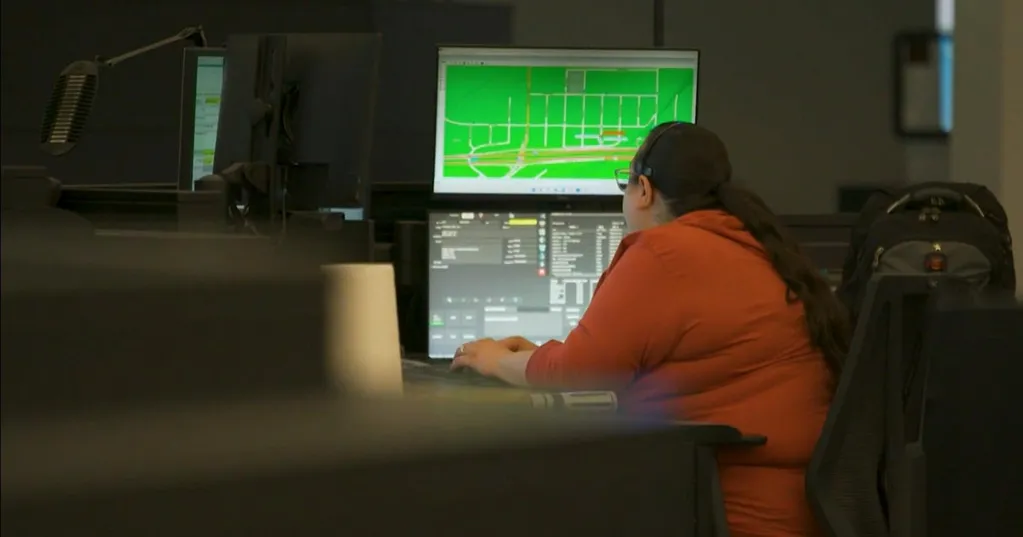Your Investigator Brian Maass has a reputation for breaking major stories. He is a veteran reporter who has established a high level of trust and credibility in the community. Share you story ideas with him by sending an email to yourreporter@cbs.com.
A new paid leave program for City of Denver workers is causing "unintended consequences" at the city's 911 call answering center, with overall leave usage among 911 call takers shooting up 334% in 2024, the first year of the Denver Care Bank program. That's according to Andrew Dameron, the director of the 911 center.
"When you provide benefits to employees that allows them to take more time off, then there are costs on the other end," said Dameron.
He said he believed there was a correlation between the spike in employees taking leave time and the new Care Bank program taking effect.
CBS News Colorado found that citywide, in 2024, city employees took roughly 33% more paid long-term leave hours than in 2023, when the Care Bank leave program was not in place.
"The challenge now," said Dameron, "is that the State of Colorado and the City of Denver are providing long overdue benefits and resources to our employees. Some of the unintended consequences is that folks are actually using those benefits."
Another unintended consequence -- although Denver's 911 call center is now nearly fully staffed and turnover is as low as it's been in years, Dameron says the city is having to pay overtime to fill positions vacated by so many more employees taking long-term leave. That's less than ideal for a city facing a $50 million budget shortfall in 2025.
Another unintended consequence: with so many more employees on leave, city figures show in 2025 to date, more than 24,000 calls have taken more than a minute to answer and it took more than 2 minutes for a live operator to connect with about 8,000 callers this year. Both of those figures are well outside national 911 standards for answering calls.
"We strive to honestly answer 911 calls immediately 100% of the time," said Dameron, but he said the amount of leave now being taken by his employees is making it difficult to comply with national 911 standards, which call for 90% of all 911 calls to be answered within 15 seconds and 95% of all calls to be answered within 20 seconds.
What's occurring now began in 2020 when Colorado voters passed Proposition 118, which called for paid family medical leave funded through a payroll tax, with 50% paid by employers and 50% paid by employees. But municipalities were given the option to create their own programs, which dozens have done, including Denver, which called its program Care Bank. It is more generous and less restrictive than the state program, as it requires no contribution from city employees, and there is no cap on benefits. So city workers can take up to 8 weeks of paid leave for a variety of reasons including personal health issues, caring for a child or caring for a family member with a serious health condition. Physical illness, mental illness, injury, pregnancy, bonding and being a victim of domestic violence or stalking also qualify for the Care Bank leave. The state program, called FAMLI, caps employee benefits at about 70% of their salary per week. The Denver Care Bank has no such benefit cap, paying employees 100% salary while on Care Bank leave and no contribution is required from employees.
It also does not require employees to first use their sick/vacation or PTO time before getting the paid Care Bank leave. The Care Bank paid leave is in addition to an employees vacation, sick time or short term disability leave.
"It is more generous than what was in place before," acknowledged Heather Britton, director of benefits and wellness with Denver's Office of Human Resources. Britton advocated for the Care Bank program saying it would be better for Denver workers compared with the state program.
"It is definitely more popular than what was there before," she said.
She guessed that long term leave usage "probably doubled" among city employees after the Care Bank program was activated.
"Suddenly having time off or paid time off where you didn't have it before is going to have unintended consequences," said Britton.
She said she was unaware of any abuse or fraud.
Britton said to get the paid Care Bank leave, a doctor has to confirm an employee is unable to work.
One City of Denver worker, who asked their name not be used, said the Care Bank program was a lifesaver when they recently had to deal with a serious health condition. The worker said knowing they would be paid for all of their time away dealing with their illness and recuperation time alleviated a lot of stress and anxiety.
Dameron says he supports the new Care Bank leave program even though it is impacting his 911 operation.
"Anytime we have somebody who is not here it impacts operations," said Dameron.
"Some folks will feed 100 people to prevent one person from going hungry and others will not feed 100 on the off chance that one person doesn't deserve it," said Dameron.
He said he would rather feed 100 people to prevent one person starving.
